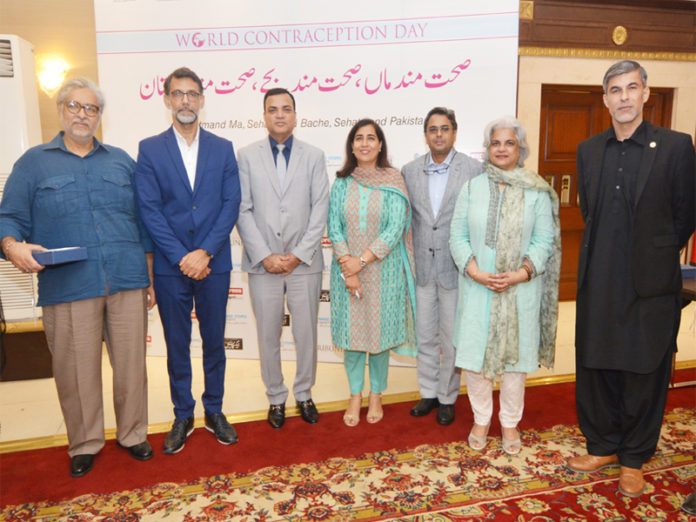MSS brings together key stakeholders to highlight why family planning is crucial for Pakistan’s development
“Estimated 9,700 maternal deaths are reported in Pakistan every year, we all need to act immediately to change this situation”
Lahore (Muhammad Yasir) Honouring International World Contraception Day celebrated earlier this week, Marie Stopes Society (MSS) hosted a seminar ‘Sehatmand ma, sehatmand bache, sehatmand Pakistan’ highlighting that a healthy mother leads to healthy children, thereby contributing to a healthy Pakistan. The Chief Guest of the seminar was honourable Secretary of Population Welfare Department, Mr. Zahid Ali Abbasi. The seminar stressed upon the need for family planning and birth spacing as the basic right of the mother and the child.
Other distinguished panelists at the seminar were Prof. Dr. Sadiah Pal, leading Gynecologist and a senior member at National Committee for Maternal and Neonatal Health (NCMNH), Syed Nasir Imam, Country Lead Public Affairs & Communication – Pfizer, Asma Balal, Country Director at MSS and Mr. Rashid Sami, Filmmaker. The panel was moderated by Dr. Xaher Gul, Director Strategy at MSS.
“Given the high rates of maternal mortality, childhood stunting and above 38% of the country’s population living in poverty, ensuring access to safe contraception directly contributes to the national development agenda,” said Asma Balal, Country Director at Marie Stopes Society.
“The need for family planning is staggeringly high in Pakistan. The Government of Sindh has been making concerted efforts to ensure the availability of contraceptives to the people of Sindh. Having said that, the grassroot challenges are present such as misperceptions, lack of trained health staff and others. To make a real difference in this area, there’s a need for awareness and proper counselling as well as combined efforts of the key stakeholders,” said Mr. Zahid Ali Abbasi in his remarks.
The event ended on a positive note where the role of the public and private sector was emphasized and new opportunities were discussed to create awareness about the issue and improve access to family planning services.






